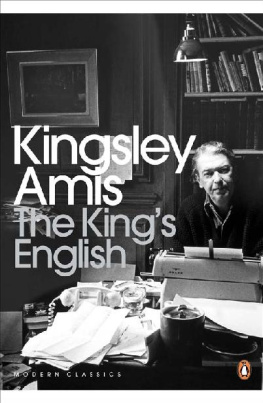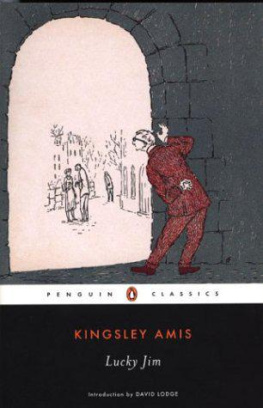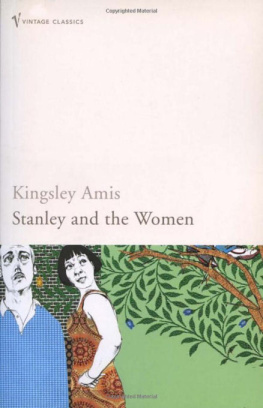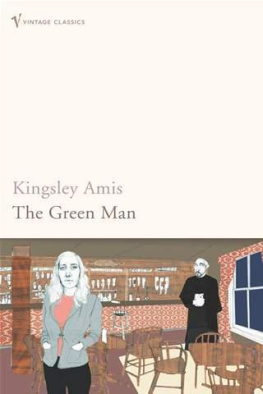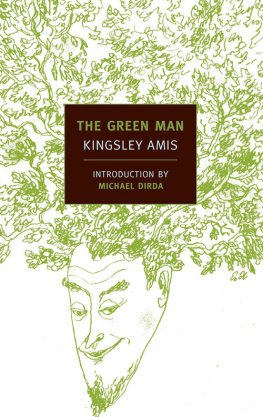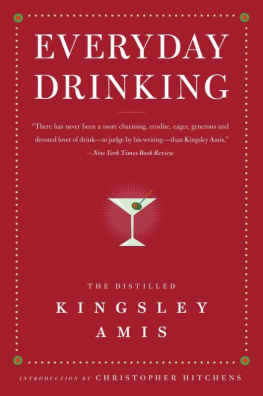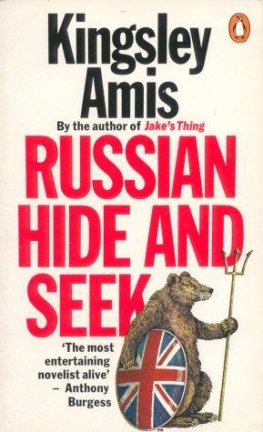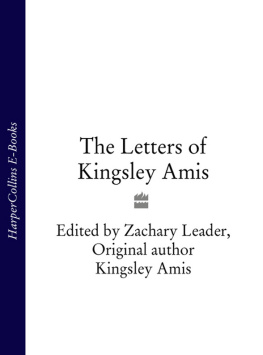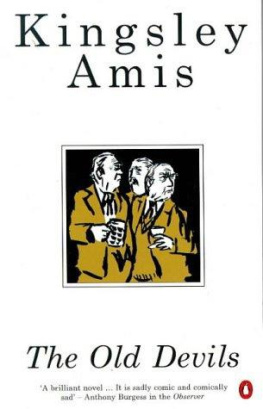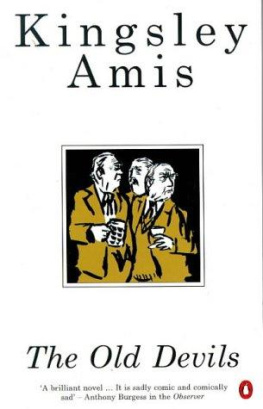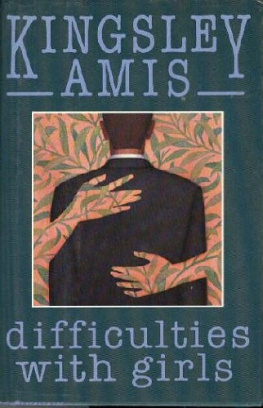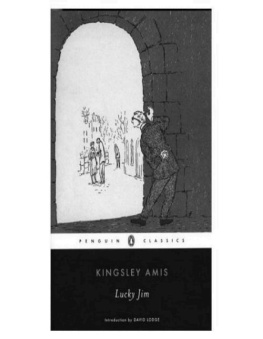Kingsley Amis - The King’s English (Penguin Modern Classics)
Here you can read online Kingsley Amis - The King’s English (Penguin Modern Classics) full text of the book (entire story) in english for free. Download pdf and epub, get meaning, cover and reviews about this ebook. year: 2011, publisher: Penguin Books Ltd, genre: Children. Description of the work, (preface) as well as reviews are available. Best literature library LitArk.com created for fans of good reading and offers a wide selection of genres:
Romance novel
Science fiction
Adventure
Detective
Science
History
Home and family
Prose
Art
Politics
Computer
Non-fiction
Religion
Business
Children
Humor
Choose a favorite category and find really read worthwhile books. Enjoy immersion in the world of imagination, feel the emotions of the characters or learn something new for yourself, make an fascinating discovery.
- Book:The King’s English (Penguin Modern Classics)
- Author:
- Publisher:Penguin Books Ltd
- Genre:
- Year:2011
- Rating:4 / 5
- Favourites:Add to favourites
- Your mark:
- 80
- 1
- 2
- 3
- 4
- 5
The King’s English (Penguin Modern Classics): summary, description and annotation
We offer to read an annotation, description, summary or preface (depends on what the author of the book "The King’s English (Penguin Modern Classics)" wrote himself). If you haven't found the necessary information about the book — write in the comments, we will try to find it.
The King’s English (Penguin Modern Classics) — read online for free the complete book (whole text) full work
Below is the text of the book, divided by pages. System saving the place of the last page read, allows you to conveniently read the book "The King’s English (Penguin Modern Classics)" online for free, without having to search again every time where you left off. Put a bookmark, and you can go to the page where you finished reading at any time.
Font size:
Interval:
Bookmark:
PENGUIN MODERN CLASSICS
The Kings English
Kingsley Amis (19221995) was born in South London and educated at the City of London School and St Johns College, Oxford. He began his literary career as a poet but shot to fame on the publication of his first novel Lucky Jim in 1954. He wrote over twenty novels including That Uncertain Feeling, Take a Girl like You, One Fat Englishman, The Green Man and Stanley and the Women . He was nominated for the Booker Prize for Ending Up (1974) and again for Jakes Thing (1978) and he won it for The Old Devils in 1986. Amis also published six volumes of poetry and many works of non-fiction including his Memoirs , in 1991. He wrote widely on science fiction, politics, education, language, films, television, eating and drinking. He was appointed CBE in1981 and was knighted in 1990.
Martin Amis is the author of twelve novels, two collections of stories, and six works of nonfiction.
With an introduction by Martin Amis

PENGUIN BOOKS
PENGUIN CLASSICS
Published by the Penguin Group
Penguin Books Ltd, 80 Strand, London WC2R 0RL , England
Penguin Group (USA) Inc., 375 Hudson Street, New York, New York 10014, USA
Penguin Group (Canada), 90 Eglinton Avenue East, Suite 700, Toronto, Ontario, Canada M4P 2Y3 (a division of Pearson Penguin Canada Inc.)
Penguin Ireland, 25 St Stephens Green, Dublin 2, Ireland (a division of Penguin Books Ltd)
Penguin Group (Australia), 250 Camberwell Road, Camberwell, Victoria 3124, Australia (a division of Pearson Australia Group Pty Ltd)
Penguin Books India Pvt Ltd, 11 Community Centre, Panchsheel Park, New Delhi 110 017, India
Penguin Group (NZ), 67 Apollo Drive, Rosedale, Auckland 0632, New Zealand (a division of Pearson New Zealand Ltd)
Penguin Books (South Africa) (Pty) Ltd, 24 Sturdee Avenue, Rosebank, Johannesburg 2196, South Africa
Penguin Books Ltd, Registered Offices: 80 Strand, London WC2R 0RL , England
www.penguin.com
First published in Great Britain by HarperCollins Publishers 1997
Published in Penguin Classics 2011
Copyright Kingsley Amis, 1997
Introduction Copyright Martin Amis, 2011
All rights reserved
The moral right of the introducer has been asserted
Except in the United States of America, this book is sold subject to the condition that it shall not, by way of trade or otherwise, be lent, re-sold, hired out, or otherwise circulated without the publishers prior consent in any form of binding or cover other than that in which it is published and without a similar condition including this condition being imposed on the subsequent purchaser
ISBN: 978-0-141-96191-0
Kingsley Amis was a lenient father. His paternal style, in the early years, can best be described as amiably minimalist in other words, my mother did it all. It should be noted, though, that if I did come across him (before he slipped back into his study), he always said something that made me laugh or smile. This went a long way. And the humour usually derived from the originality of his phrasing. When I was sixteen or seventeen, and started reading books for grown-ups, I became, in his eyes, worth talking to. And when, six or seven years later, I started using the English language in the literary pages of the newspapers, I became worth correcting. I was in my early-middle twenties; my father was still amiable, but he was lenient no longer.
Has your enormity in the Observer been pointed out to you? he asked with enthusiasm over breakfast one Sunday morning (I had left home by then, but I still spent about every other weekend at his house). My enormity? I knew he was applying the word in its proper sense something very bad, and not something very big in size. And my mistake was certainly atrocious: I had used martial as a verb. Later, while continuing to avoid hopefully (a favourite with politicians, as he insists), I pooh-poohed his reprimand about my harmless use of the dangling thankfully . I also took it in good part when, to dramatise my discipleship, as he saw it, of Clive James (a very striking new voice in the 1970s), Kingsley started reading out my reviews in an Australian accent. But there was one conversationthat I still recall with a sincere moan of shame: it concerned the word infamous . In a piece about the Two Cultures debate, I referred to F. R. Leaviss infamous crucifixion of C. P. Snow. You leave us in no doubt, said Kingsley watchfully, that you disapproved of it. I remained silent. I didnt say, Actually, Dad, I thought infamous was just a cool new way of saying controversial .
Infamous will in fact now serve as the reigning shibboleth (or test word, or giveaway). Anyone who uses it loosely, as I did, is making the following announcement: I write without much care and without much feeling. I just write like other people write . As Kingsley puts it in The Kings English (and the King, by the way, was a nickname he tolerated):
Both adjective and noun [ infamous and infamy ] used to be terms of extreme moral disapproval, equivalent in depth of feeling to abominable and wickedness. Then quite recently the adjective weakened in severity to something on the level of notorious [or, he might have added, simply famous] The noun infamy , although seemingly out of use, retains its former meaning, but infamous is now unusable through ambiguity.
Kingsley gives some good examples (so-and-sos undergraduate life in the 1920s is now infamous). But I wish he were alive to savour what must surely be the final profanation of this blameless adjective. A Guardian sportswriter recently referred to Steve McLaren the sacked manager of the national football team and his infamous umbrella. All McLaren had done with his umbrella was stand on the touchline under it, during a downpour (which was considered a little unmanly). With infamous , we see linguistic incuriosity in its most damaging form. A supposedly smart addition to the language becomes an inadvertent subtraction. Unusable through ambiguity: the same can be said of brutalise, decimate, crescendo, dilemma, alibi, avid, oblivious, optimistic, eke out and refute , among many others.
Such a tendency is nowhere better caught in The Kings English than in the entry under Dj vu, an uncanny sense of :
Its original application was to a transient psychological state, not uncommon among those under about forty, in which the subject feels that he has seen before some place where he has provably never been in this life (thus providing fanciful evidence for reincarnation). The journalistic contribution has been to apply this feeling to some event or situation a person has witnessed before
The journalistic contribution thus obscures the old meaning, while providing the needy with a useful and quite posh-looking alternative to this is where I/we came in and other tattered phrases. Similarly with jejune . On its journey from meaning scanty, arid to meaning immature, callow, jejune has acquired an extra vowel and an acute accent, plus italicisation as a Gallicism. Kingsley quotes the following beauty: Although the actual arguments are a little jjeune , the staging of mass scenes are [ sic ] impressive. We watch such developments (in this case the gradual deportation of an English word into French) as we would watch the progress of a virus; like babesiosis and fog fever, such viruses afflict cattle and buffalo and wildebeest; they are the maladiesof the herd.
Kingsleys favourite dictionary was the Concise Oxford . Its all you really need, he used to say, patting it or even stroking it. And the COD , I see, has come to toe the line on infamous, dj vu and jejune , giving the new meanings pride of place. Kingsley would have offered no objection (though he did secretly pine for an extra dictionary label: namely, illit ., to go with colloq . and derog . and the rest). Usage is irreversible. Once the integrity of a word is lost, no amount of grumbling and harrumphing can possibly restore it. The battle against illiteracies and barbarisms, and pedantries and genteelisms, is not a public battle (except in books like this, which are rare). It takes place within the soul of everyindividual who minds about words.
Next pageFont size:
Interval:
Bookmark:
Similar books «The King’s English (Penguin Modern Classics)»
Look at similar books to The King’s English (Penguin Modern Classics). We have selected literature similar in name and meaning in the hope of providing readers with more options to find new, interesting, not yet read works.
Discussion, reviews of the book The King’s English (Penguin Modern Classics) and just readers' own opinions. Leave your comments, write what you think about the work, its meaning or the main characters. Specify what exactly you liked and what you didn't like, and why you think so.

